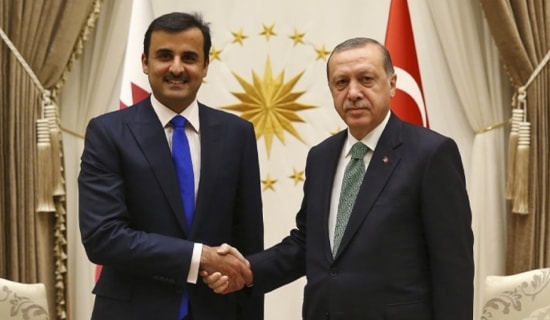On the Chinese Q&A website Zhihu, a well-known commentator known as "Constant Low Entropy" argues that China should create new terms from Chinese concepts and "forcibly create a new Western discourse" to change Western democracies' thinking about China and about themselves.
Changing the Chinese words to create new meanings will gradually affect the translation and understanding of Western words for both Chinese and Western audiences and isolate those who fail to go along. The purpose is to create a distinction between the understanding of Chinese and Western governance, transform English-language thinking about China, and force English speakers to see the superiority of the present Chinese system and the inferiority of their own systems.
The February 26, 2021 Q&A session on Zhihu, published by Guancha, shows that approved Chinese media are experimenting with ways to re-define "party," "government," "country," and "citizen," uprooting them from their traditional meanings and transplanting them toward a Party-dominated way of thinking.
Below is the comment published in Zhihu:[1]

(Source: Sciendo.com)
Guancha's Introduction: 'Create New Western Discourse And Transform The Current Chinese Political And Social Vocabulary'
"Recently, a well-known respondent on [the question-and-answer website] Zhihu under the pen name 'Constant Low Entropy' answered a question posted on the website: 'Do we need to explain China's behavior to the Western developed countries in Western discourse system?' The answer struck a chord with netizens, receiving more than 7,700 likes and 500 comments.
"'Constant Low Entropy' says that to tell a Chinese story, one begins a Chinese concept, and the Chinese concept should be described in Chinese vocabulary. On top of that, China should create new Western discourse and transform the current Chinese political and social vocabulary, so as to facilitate the Chinese intellectual community to break through the western system quickly.
"Guancha hereby reprints the full text of Constant Low Entropy's reply to this question for readers' reference and discussion. The article has been reprinted with the authorization of the author."
'We Cannot Use The Existing Western Discourse, But Need To Forcibly Create A New Western Discourse;' 'We Can Monopolize The Good English Word 'Democracy'
"We need to. But we cannot use the existing Western discourse, but need to forcibly create a new Western discourse, at the same time to transform the Chinese discourse.
"I have long believed that terms such as 'democracy, state, party, and government' have very different meanings in China and the West, and that using the same set of words to describe very different things confuses both Chinese and Westerners. I think there should be a systematic retranslation of political and social vocabulary, both from Chinese to English and from English to Chinese.
"I have previously suggested that the real meaning of the English word 'democracy' should be translated as piao zhu (which means 'ballots and banknotes rule') in Chinese instead of min zhu (democracy, which means 'people rule'). Piao zhu point to the two essentials of Western democracy: ballots (xuan piao) and banknotes (chao piao). On the other hand, the Chinese meaning of the word 'democracy' should also be translated in English as 'people-dominancy,' which means 'people's domination' as well. In this way, when Westerners say that China is not a 'democracy' (which means that ballots and banknotes rule in the West), we can say that we are indeed not; we are clearly a 'people-dominancy.' In this way, Westerners will suddenly be stunned and have to go back to see what it means. On the other hand, we can say to the Chinese people that the West is not a min zhu (democratic) system but a piao zhu (ballots and banknotes ruling) system, so we can monopolize the good English word 'democracy.'"
Change The Understandings Of 'Party,' 'Country,' 'Government,' And 'Citizen'
"Let me give you a few more examples.
"The Chinese phrase for 'communist party' should be translated into English as 'communist legion' instead. The word 'legion' has military connotations and conforms to the so-called Communist Party's nature of discipline and vanguard. The word 'party' contains the meaning of 'part,' which is not consistent with the fact that the communist party represents the interests of the whole people.
"On the other hand, a Western political party should not be translated as a 'political party,' but should be translated as a 'political society,' such as the American Republican Society. This is in line with their looseness and partial representativeness. So in the future when a Western country attacks us as a 'party state,' we can say you are 'party state' and we are 'legion state,' so the Westerners will have to learn new concepts.
"The Chinese word for 'country' should be translated as 'familination,' a combination of 'family' and 'nation.' In addition, in Chinese, the use of the two words 'familination' and 'country' should also be distinguished: for China, we can use the word 'familination,' but for the West, we can only use the word 'country.' Westerners have a clear distinction between 'country' and 'family.' If a two-word phrase is needed, it is more realistic to say 'Western countries' or 'Western states.'
"The meaning of the Chinese word for government (zheng fu, in Chinese), which should be translated into English as 'governsys,' referring exclusively to a political system that, like the Chinese government, has in principle the unlimited responsibility to govern a vast array of affairs. The word 'government' in the Western discourse should be translated in Chinese as guan suo, a place of administration.
"The English word 'citizen' should not be translated as gong-min (public people) in Chinese, but as fa-min (lawful people). The term fa-min (lawful people) emphasizes having a nationality and thus the corresponding legal rights and obligations. The word gong-min (public people) implies a group, a collective, and the word gong-min could also be translated as groupizen in English, which is derived from the word 'group.' Therefore, we can call China a 'groupizen society' and the West a 'lawful people society.' Responding to the call to wear a mask is a groupizen act, and claiming one's right not to wear a mask is a lawful people act. Therefore, it is not surprising that Chinese people like to wear masks, while Western people resist wearing masks."
'If Westerners Accept The New Chinese Vocabulary, They Are Expected To Gradually Leave The Ideological Hothouse Of The West'
"To tell a Chinese story, one must first have a Chinese concept, and a Chinese concept must be described in Chinese vocabulary. China's political vocabulary has been dominated by Western discourse for too long. It's time to use a new one.
"If Westerners accept the new Chinese vocabulary, they are expected to gradually leave the ideological hothouse of the West; if they don't, they will become less aware of China. It is a good thing to let people of insight draw closer to our discourse gradually, let the autistic conservatives and their like be more ignorant.
"On the other hand, the use of new Chinese political vocabulary is also conducive to the Chinese intellectual community to break through the Western system at an early date to do political exploration for China and even for mankind."
[1] Guancha.cn/ChiXuDiShang/2021_02_26_582357.shtml, February 26, 2021.




